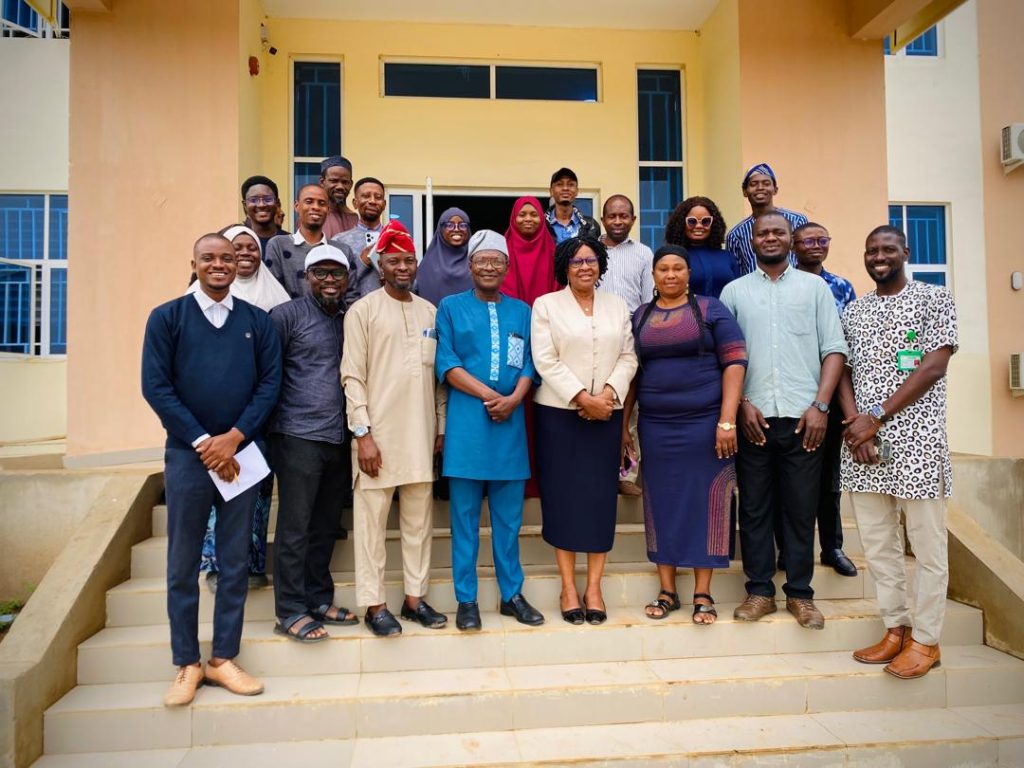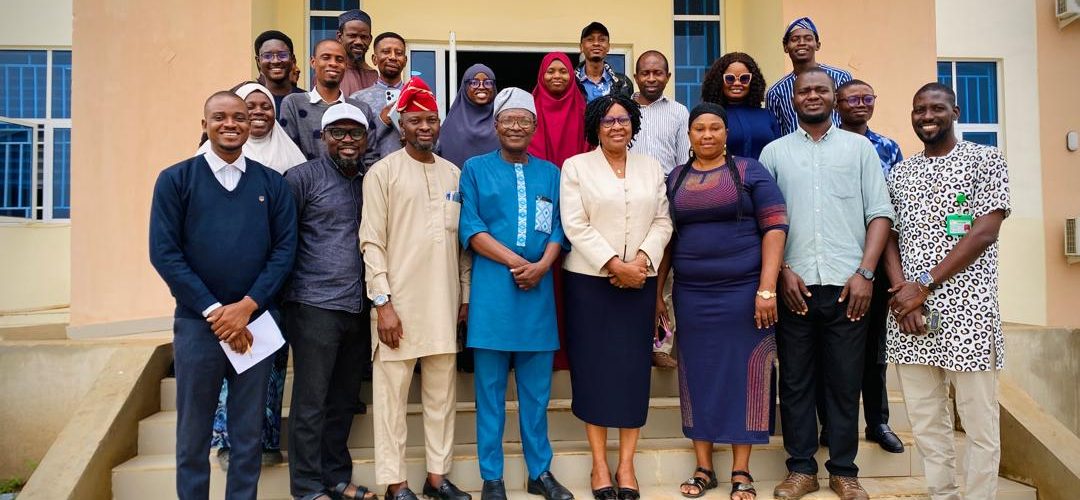The University Library of the Federal University of Health Sciences, Ila-Orangun (FUHSI), on Tuesday, 20th May 2025, warmly received the crème de la crème of the Faculty of Basic Medical Sciences to a specially organised soft skills workshop. The event, held at the University e-Library, was arranged through the initiative and collaboration of the Dean of the Faculty, Professor A. O. Malomo, and the University Librarian, Mrs B. O. Asubiojo, FNLA. The workshop was designed to enhance the capacity of academic staff in navigating and utilising electronic resources available through the university library to support teaching, research, and academic development.
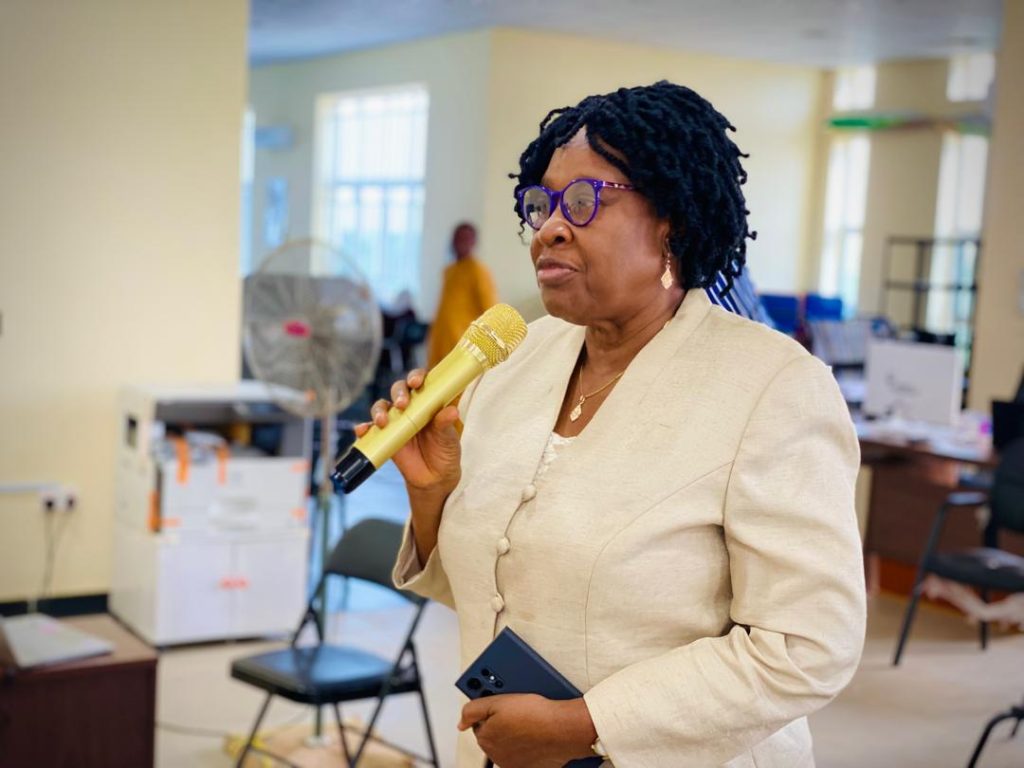
The gathering comprised a cream of intellectuals from the faculty, including the Dean, Heads of Departments, lecturers, Faculty Officers, and administrative staff, all of whom took time out of their busy schedules to engage in this impactful session. In her opening address, the University Librarian welcomed the participants and stressed the importance of a cordial and continuous relationship between the library and academic departments. She emphasised that the enormous investment in acquiring electronic and print resources for the university would only yield value through active and judicious utilisation by both staff and students. She particularly drew attention to the university’s subscription to several premium electronic databases such as Research4Life, J-Gate, and IG Publishing, urging faculty members to take full advantage of these resources before their access periods expire.
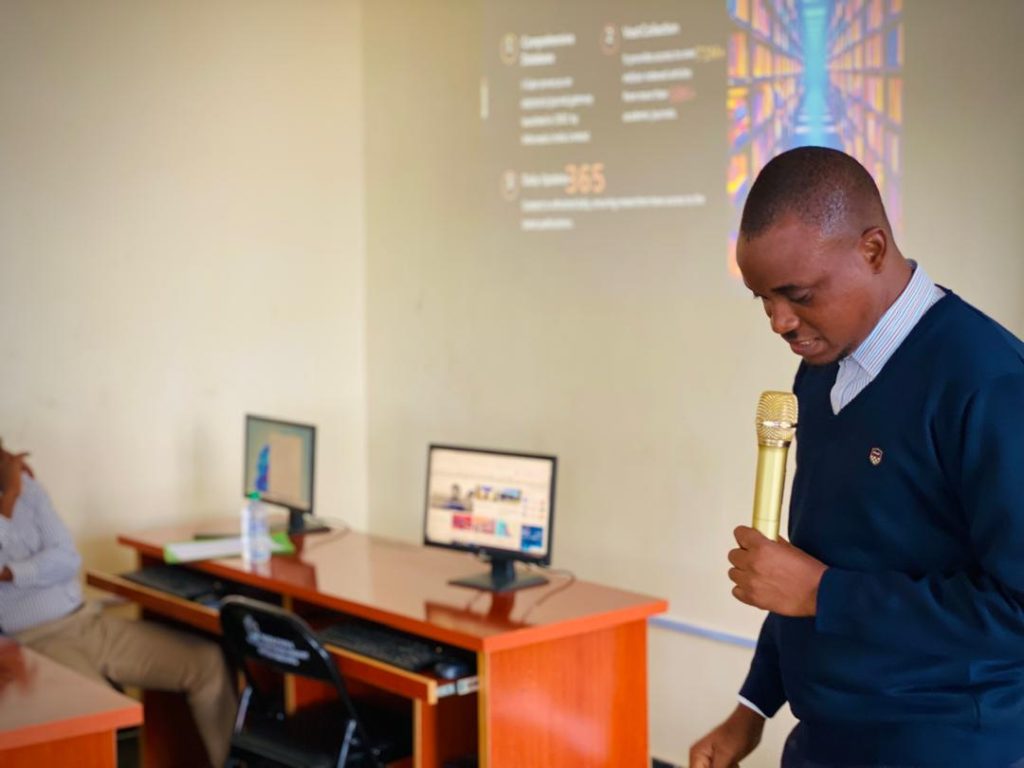
The first presentation of the day was led by Mr Bayor Odelami, who gave a comprehensive demonstration of J-Gate and IG Publishing databases. He provided an in-depth explanation of the functionalities of J-Gate, highlighting its vast collection of peer-reviewed journals and features such as advanced search options, Boolean operators, date and author filters, and personalised user options like bookmarking and search alerts. Mr Odelami also offered practical tips for efficient database use and walked participants through Jgate’s user interface, illustrating how to access and download academic journals and eBooks. The session was followed by a hands-on practice segment, where participants were able to test their new skills directly on the platforms.
The second phase of the workshop was handled by Dr Azeez Adebamgbola Adeoye, a Senior Librarian and digital literacy advocate. His session, titled “Optimising Electronic Databases: A Perspective on Research4Life,” began with a reflection on the foundational pillars of academic life—teaching, research, and community service—with research often forming the majority criterion for academic promotion. Dr Adeoye emphasised the need for academics to prioritise quality research output and illustrated how emerging AI tools can support research conceptualisation. He introduced the participants to platforms such as Research Rabbit, Elicit, Litmap, ConceptMap, and Connected Papers, while cautioning that these tools are enablers, not replacements, for genuine academic effort. Dr Adeoye provided a comprehensive walkthrough of the Research4Life platform, with a special focus on HINARI, which is highly relevant to basic medical sciences. He demonstrated the platform’s interface, search capabilities, and downloading procedures, followed by another hands-on segment where participants practised retrieving scholarly articles. The session was interactive and enriched with relevant questions that clarified database navigation and resource management.
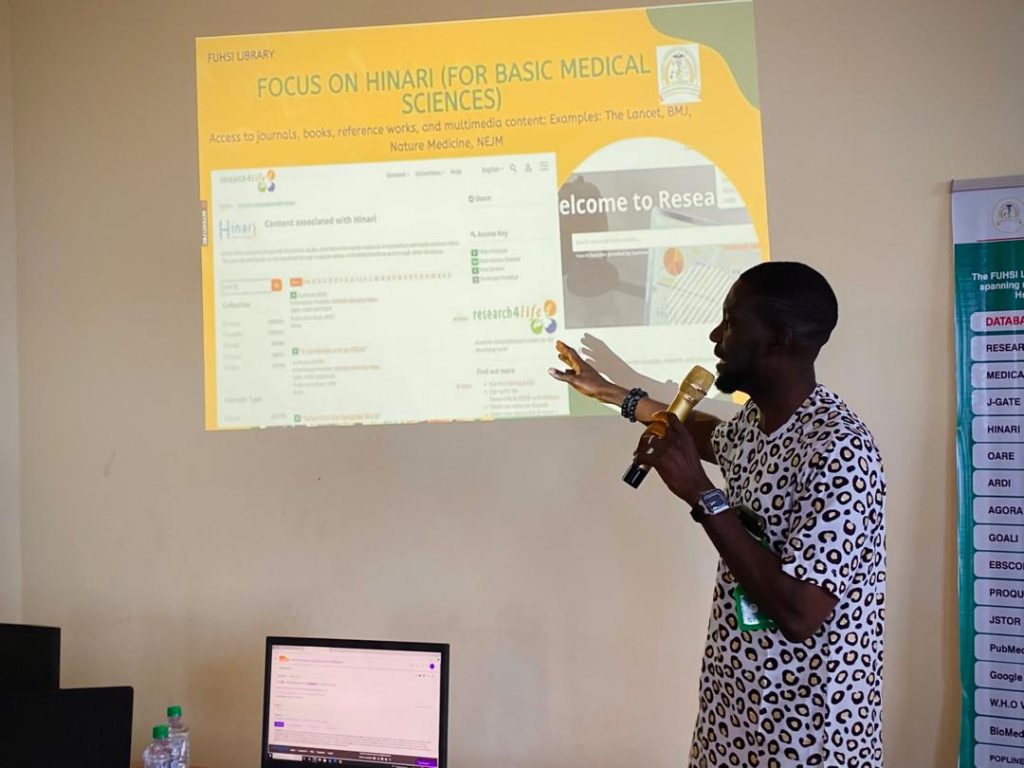
Following the digital sessions, Mrs Stella Olaleke guided the faculty members on a tour of the library’s physical collections. Participants were introduced to well-curated print materials across various disciplines, including medicine, pharmacology, anatomy, physiology, and other allied health sciences. The participants expressed admiration for the breadth and quality of the physical collections, acknowledging the library’s effort in maintaining a balanced hybrid of digital and print resources.
In their closing remarks, several faculty members expressed their satisfaction with the workshop. Dr Felix Afoloabi (HoD, Pharmacology), Dr Maruf Balogun (HoD, Physiology), Dr M. O. Abdulwahab (HoD, Anatomy), and Dr M. Ilesanmi (HoD, Medical Bichemistry) commended the University Library for organising such an enlightening and practical session. They expressed hope that similar workshops would be extended to students and early-career academics. The Dean, Professor A. O. Malomo, conveyed deep appreciation to the University Librarian and her team, noting the quality of delivery and the relevance of the training. He advocated for sustained collaboration between the library and the faculty and encouraged the inclusion of topics like grant writing and academic publishing in future engagements, especially for students at the formative stages of their academic journey.
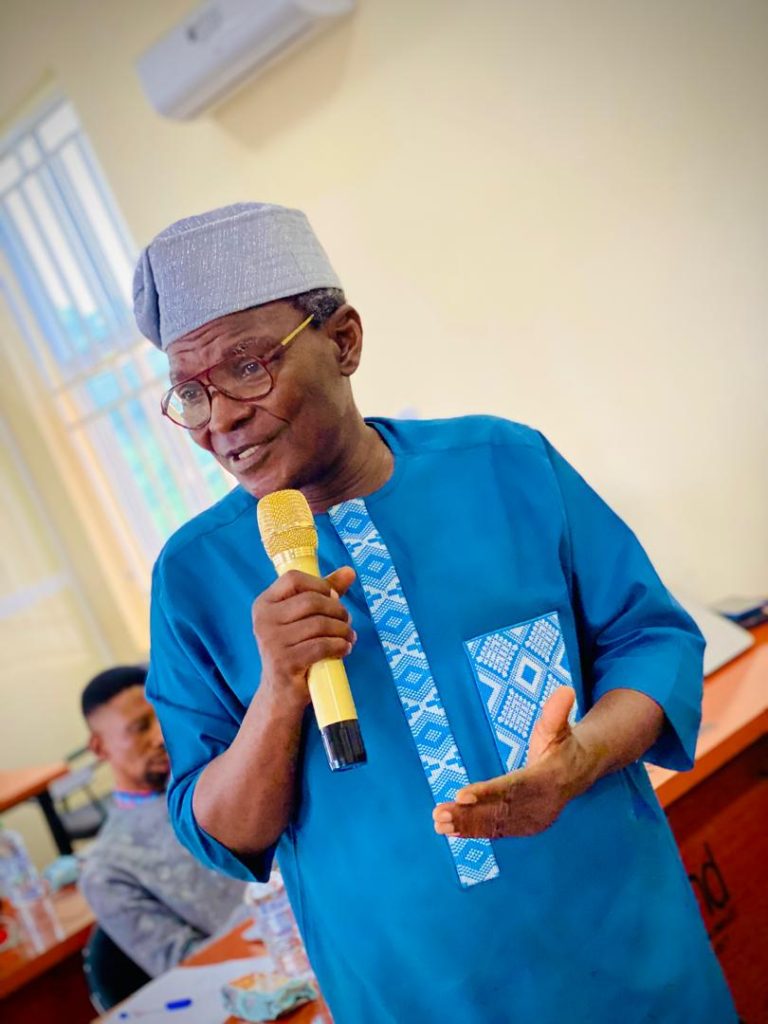
Mrs Asubiojo, in her final remarks, thanked the faculty members for creating time out of their tight schedules to attend the workshop. She recognised the collective efforts of the library staff, whose dedication made the programme a success. She appreciated the facilitators—Dr Azeez and Mr Bayor—as well as the event moderator, Mr Mubarak Onigbinde; the venue coordinator, Mr Lukman Suleman; the system operator, Mr David Oguntuase; the photographer, Mr Ridwan Akintayo; the refreshment coordinator, Mrs Stella Olaleke; and the ever-supportive Mr Olaitan Muhammed. She reiterated that the joy of the library lies in the utilisation of its resources—its space, technology, books, databases, and staff expertise—and that increasing engagement with the library justifies the significant investments made by the university. The event concluded on a celebratory note with the presentation of electronic certificates to participants, a group photograph session, and light refreshments. The success of the workshop reinforced the university library’s position as a dynamic citadel for academic support and reaffirmed its commitment to fostering excellence through partnership with the academic community.
